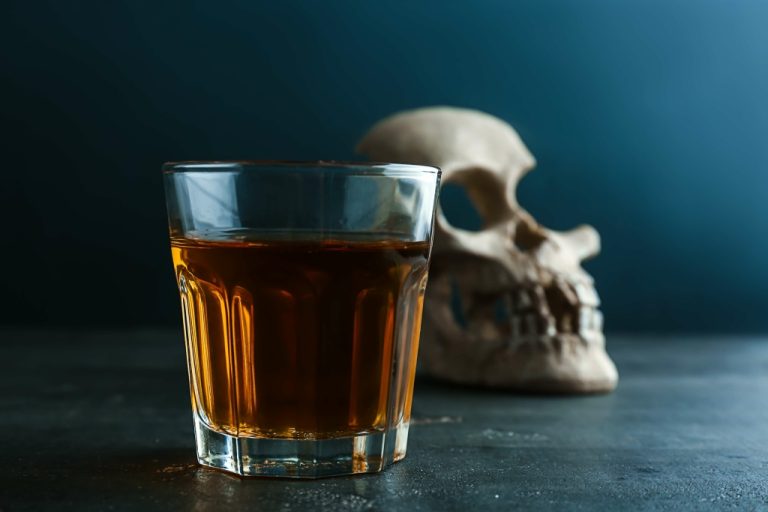Content
- Reversing the Damage Done from Substance Abuse
- Here is what an addicted brain looks like in an MRI
- How Does Addiction Affect the Brain?
- How do drugs work in the brain?
- Online Therapy: Is it Right for You?
- Rewarding The Brain: How Addictions Develop
- Therapists are Standing By to Treat Your Depression, Anxiety or Other Mental Health Needs
Through the use of FDA-approved medication along with mental health support and therapy, America’s Rehab Campus gives guests a safe chance to break away from addiction. Ultimately, the answer lies in a person’s unique brain chemistry and lived experiences. Most people who develop addiction are looking to heal or soothe themselves in some way. It’s crucial to understand why that is, and work to address it, as part of a person’s treatment plan and journey to recovery. It develops before the pre-frontal cortex which is the last part of the brain to fully develop. The pre-frontal cortex is responsible for executive functions such as insight, judgment, planning and impulse control.
It helps patients to reduce stress and anxiety and can treat compulsions. The end result of both therapies is the administrator rewarding the brain to recover how it functions. For the brain, the difference between normal rewards and drug rewards can be likened to the difference between someone whispering into your ear and someone shouting into a microphone. As a result, the person’s ability to experience pleasure from naturally rewarding (i.e., reinforcing) activities is also reduced. Once the brain adapts to consistent drug use, it becomes reliant on it, triggering dangerous and risky behaviors – all to support the intention of getting more of the drug, at any cost.
Reversing the Damage Done from Substance Abuse
If the damage took place in an area where other brain cells compensated for what was offset by drug addiction, recovery may be possible and even likely. However, if the damage occurred in an area of the brain where function was more specialized, and with less overlap, then full recovery can be hampered. Additionally, many addicts experience anxiety around trying to hide their habits from sober house other people. In a lot of cases, it’s difficult to tell whether anxious people are more likely to abuse substances or if illicit drugs and alcohol cause anxiety. Dopamine isn’t the only neurotransmitter that affects your mood and mental state; serotonin, norepinephrine, and many more play a part. Just like addiction, mental disorders aren’t usually the result of one trigger or cause.
What drugs target dopamine receptors?
- Amisulpride (Barhemsys®).
- Metoclopramide (Reglan®, Gimoti®).
- Droperidol (Inapsine®).
- Haloperidol (Haldol®).
- Chlorpromazine (Thorazine®).
- Prochlorperazine (Compazine®*, Compro®).
- Olanzapine (Zyprexa®, Lybalvi®, Symbyax®).
Let’s take a deeper look into the causes of addiction and how this area of the brain is impacted. Some drugs have toxic effects that can kill neurons in the brain. While changes to connections between neurons in the brain may not be permanent, some last for months or even years. Addiction is a public health concern that impacts all of society, even individuals who do not use. Its effects can be felt across prisons, in the workplace, and in the home. Unfortunately, the stigma that surrounds addiction often prevents individuals from seeking out help.
Here is what an addicted brain looks like in an MRI
This is why people who were once clean, kind, and compassionate are driven to steal money from family members or engage in other illegal activities. The addiction has taken over at this point; the individual has less and less control over their actions. They are fighting their own brains, trying to stop overwhelming urges. This is why it’s essential to treat addiction as a disease, not a choice.
- The brain controls our thoughts, memory and speech, movement of the limbs, and the function of many organs within our body.
- Whether it’s alcohol, prescription pain pills, nicotine, gambling, or something else, overcoming an addiction isn’t as simple as just stopping or exercising greater control over impulses.
- The good news is that the brain has the ability to heal itself (neuroplasticity) and can heal from problematic substance use.
Once a chemical enters the brain, it can cause people to lose control of their impulses or crave a harmful substance. Some drugs like opioids also disrupt other parts of the brain, such as the brain stem, which controls basic functions critical to life, including heart rate, breathing, and sleeping. This interference explains why overdoses can cause depressed breathing and death.
How Does Addiction Affect the Brain?
Every function you complete requires these networks of neurons to work properly. Addiction is a complex disease impacting the function of the brain. The part of the brain that causes addiction is called the mesolimbic dopamine pathway.

Addiction is a brain disease that causes physical and physiological changes to the brain. The brain controls our thoughts, memory and speech, movement of the limbs, and the function of many organs within our body. Drugs and alcohol affect the brain’s neurotransmitters, which release an excess level of dopamine, causing temporary pleasurable feelings and euphoria. The brain eventually adapts to the quantity of drugs or alcohol used, making the sought-after substance or activity less pleasurable.
How do drugs work in the brain?
In general, when narcotics are used under proper medical supervision, addiction happens in only a small percentage of people. Drugs of abuse affect the brain much more dramatically than natural rewards, such as food and social interactions. To bring stimulation down to a more manageable level, the brain must try to adapt. The reward circuit in the brain includes areas involved with motivation and memory as well as with pleasure. Addictive substances and behaviors stimulate the same circuit—and then overload it. EEGs are typically used to help individuals who have suffered traumatic brain injuries and can be helpful to individuals with obsessive compulsive disorder and other brain disorders.
- For example, they cannot purchase alcohol or cigarettes or enter into binding contracts.
- This discovery has contributed to our understanding of how powerful cravings can lead to relapse, months or even years into recovery.
- The hippocampus lays down memories of this rapid sense of satisfaction, and the amygdala creates a conditioned response to certain stimuli.
- Addiction changes the brain, first by subverting the way it registers pleasure and then by corrupting other normal drives such as learning and motivation.
- They change how the neurons send and receive messages and how they process the messages from neurotransmitters.
- In a way, it encourages them to repeat these types of behaviors and avoid those that create negative responses.
The adolescent brain is particularly vulnerable to developing a substance use disorder. The brain is wired to engage in activities that release dopamine. Substance misuse alters the brain and compromises the user’s ability to say no. Long-lasting brain changes can make it challenging for individuals struggling with addiction to stay drug-free. They often experience intense cravings for years, which can lead to relapse. Methods that provide dynamic physiological information about brain function/activity.
